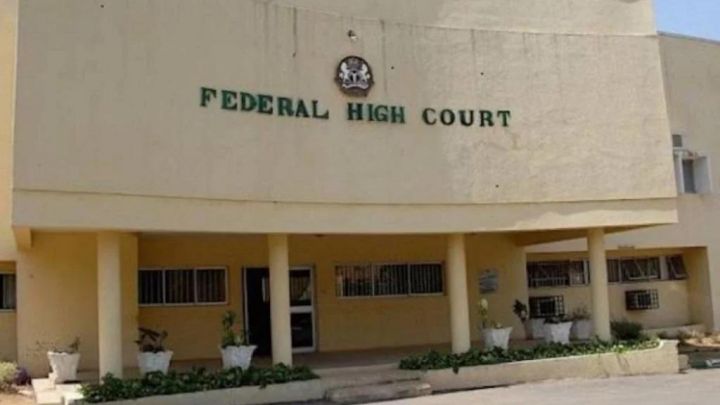In a significant legal victory for opposition parties, the Federal High Court in Abuja has issued an order restraining the Kano State Independent Electoral Commission (KANSIEC) from imposing exorbitant fees on candidates contesting in the upcoming local government elections.
The ruling comes after KANSIEC announced that chairmanship and councillorship candidates would be required to pay N10 million and N5 million respectively as part of their election bid.
This decision sparked widespread criticism, leading to legal action spearheaded by several political parties.

Justice Emeka Nwite, presiding over the case, granted the restraining order in response to a lawsuit filed by the Action Peoples Party (APP), the Action Democratic Party (ADP), and the Social Democratic Party (SDP).
The opposition parties argued that the imposition of such high fees was not only unjust but also unconstitutional, as it effectively barred many qualified candidates from participating in the electoral process due to financial constraints.
The plaintiffs contended that the fees demanded by KANSIEC were beyond the financial reach of most aspiring candidates and, if allowed to stand, would create an uneven playing field that favoured only wealthy contestants or those backed by powerful sponsors.
The suit challenged the legality of the imposed fees on the grounds that they violated the principles of free and fair elections as enshrined in Nigeria’s Constitution.
During the hearing, counsel for the plaintiffs argued that the imposition of such fees was not authorised by any existing law and amounted to a form of disenfranchisement.
They maintained that elections should be accessible to all eligible citizens regardless of their financial status, and that KANSIEC’s actions were tantamount to a restriction on democratic participation
They further argued that the imposition of financial barriers undermines the democratic process and limits the ability of citizens to elect representatives who genuinely reflect their interests.
Justice Nwite, in his ruling, upheld the arguments presented by the opposition parties. He noted that the actions of KANSIEC were indeed excessive and had no legal basis.
The judge highlighted the importance of maintaining an electoral process that is both inclusive and fair, without undue financial burdens that could skew the results in favour of a select few. Justice Nwite’s ruling effectively halts KANSIEC from proceeding with the enforcement of the controversial fees, pending a final determination of the suit.
The court’s decision has been welcomed by many as a crucial step towards protecting the integrity of the electoral process in Kano State.
Political analysts have argued that such fees, if allowed, would set a dangerous precedent, potentially leading other states to adopt similar measures, thereby restricting the political space and reducing the diversity of candidates in local elections across Nigeria.
In response to the court’s decision, several civil society organisations and election observers have praised the ruling, describing it as a victory for democracy and the rule of law.
They stressed that the judiciary’s intervention was necessary to prevent the erosion of democratic norms and to ensure that elections remain accessible to a broad spectrum of candidates, including those from less privileged backgrounds.
Despite the ruling, there are concerns that KANSIEC may seek to appeal the decision, potentially prolonging the legal battle. However, the current injunction remains in place, preventing the commission from enforcing the fees while the case continues.
The outcome of this case could have significant implications for the conduct of local government elections in Kano and potentially set a legal precedent for other states.
The ruling also serves as a reminder of the ongoing challenges facing Nigeria’s electoral processes, including the need for reforms that promote inclusivity and fairness.
As Nigeria continues to grapple with issues of electoral integrity, the court’s decision highlights the critical role of the judiciary in upholding democratic principles and ensuring that elections are not reduced to contests of financial power.
For now, the suspension of the fee imposition by KANSIEC provides a reprieve for candidates and political parties who feared that their electoral aspirations would be stifled by prohibitive costs.
The case underscores the importance of vigilance and legal recourse in the fight to maintain a level playing field in Nigerian politics, ensuring that all eligible citizens have the opportunity to participate in the democratic process.
Support InfoStride News' Credible Journalism: Only credible journalism can guarantee a fair, accountable and transparent society, including democracy and government. It involves a lot of efforts and money. We need your support. Click here to Donate
